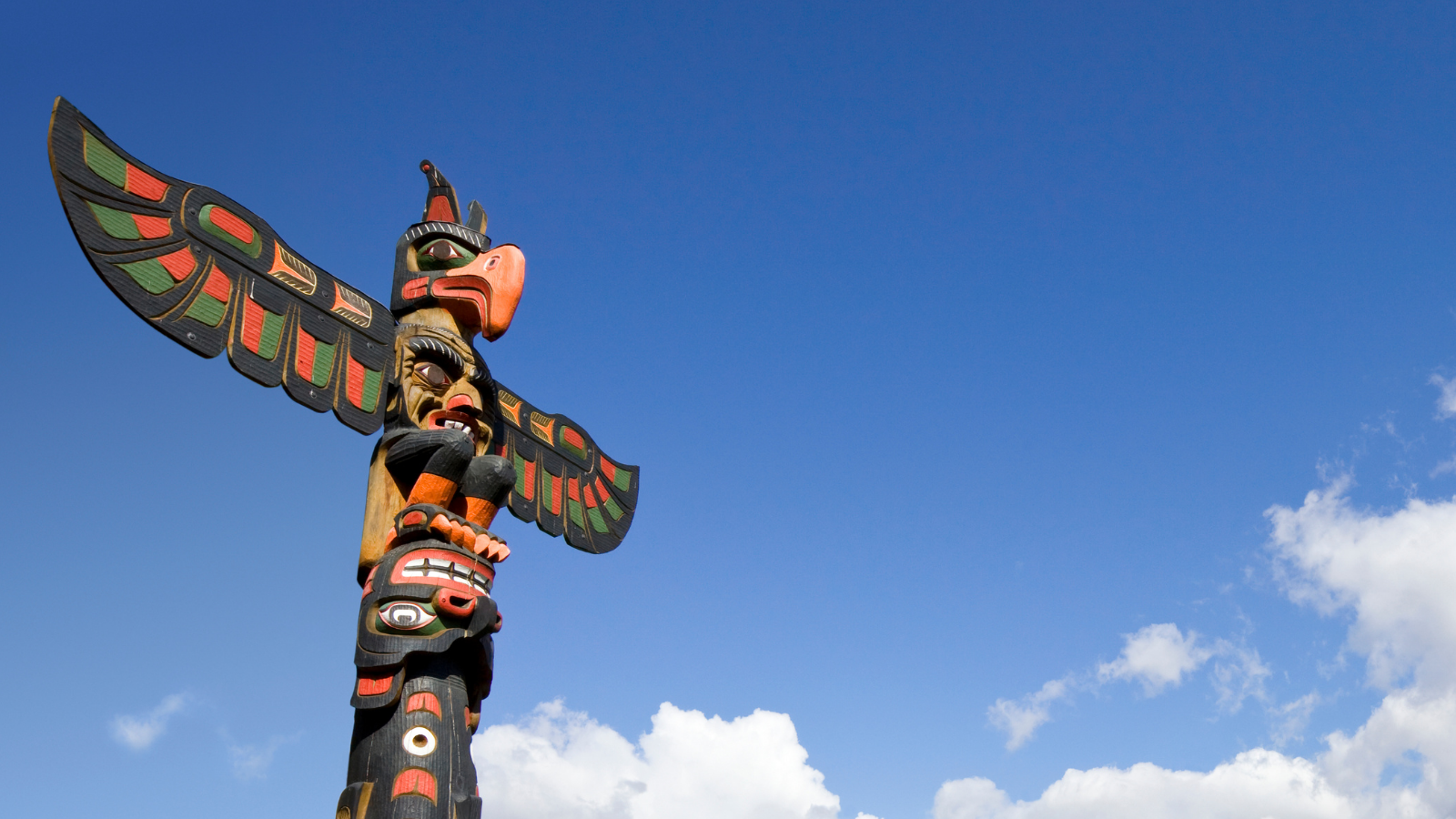
Indigenous CECs are intended to encourage, recognize and award CECs
to CCPA members who are currently working or planning to work with Indigenous communities
Indigenous CECs are open to Indigenous and non-Indigenous practitioners who completed a recognized Indigenous learning event
Indigenous CEC events are not to duplicate existing CEC events rather these learning activities are directly associated with traditional teachings, healing ceremonies and cultural support that assists CCPA members in providing culturally safe, appropriate and effective services to Indigenous (First Nations, Métis and/or Inuit) clients, families, and communities with mental health and wellness issues.

Indigenous CEC Brochure
How are Indigenous CECs awarded?
| Term | Definition | Number of CECS | Required Documents |
| Traditional teachings |
|
1 credit per hour | CEC form (I)A includes community attestation and proof of attendance attestation |
| Healing ceremonies |
|
1 credit per hour | CEC form I(B) includes community attestation and proof of attendance attestation |
| Community engaged scholarship |
|
1 credit per hour | CEC form I(C) includes community attestation |
Indigenous Continuing Education Credit FAQ
The Indigenous CEC Initiative is intended to encourage, recognize, and award CECs to CCPA members who are currently working or planning to work with Indigenous communities – thereby assisting CCPA members in providing culturally safe, appropriate, and effective services to Indigenous (First Nations, Métis, and/or Inuit) clients, families, and communities with mental health and wellness issues.
Learning activities of this nature support meaningful contributions to CCPA members’ understanding of Indigenous peoples’ diverse histories, contemporary experiences and legal rights; and fostering the creation of respectful relationships, and effective communication and collaboration with Indigenous peoples in delivering timely, relevant, accessible, and culturally-congruent mental health programs and services.
CCPA recognizes its role in contributing to reconciliation in Canada. As such, the Indigenous CEC Initiative acknowledges a number of the Truth and Reconciliation Commission’s (TRC) calls to action, specifically with regards to incorporating Indigenous knowledge and ways of knowing into professional development and learning:
- recognizing the value of Indigenous healing practices and implementing them in collaboration with Elders and healers (TRC Recommendation #22); and
- increasing Indigenous health professionals and providing cultural competency training for professionals working with Indigenous peoples (TRC Recommendation #23).
As part of the CCPA Indigenous CEC application process, applicants will need to clearly state their rationale(s) of the given Indigenous CECs in relation to select TRC Calls to Action “learning outcomes”. The onus is on CCPA members to clearly state how they met or exceed the selected TRC Calls to Action learning outcomes that they identified in their respective Indigenous specific CEC application forms.
For more information about the TRC Calls to Action, click here.
All CCPA members are eligible to accrue Indigenous CECs which can be allocated towards the overall minimum of 36 CECs over the course of each three-year certification period and to receive transcript documentation of engagement in these professional development activities.
CCPA members applying for Indigenous CECs may be of Indigenous or non-Indigenous ancestry.
1- Research Indigenous continuing education opportunities that are of interest to you.
2- Attend the learning event.
3- Complete the applicable Indigenous CEC Application Schedule/Form – includes having the teacher/trainer/facilitator sign your attendance at the learning event, and obtaining a community attestation, and proof of attendance attestation.
Note: The applicable Indigenous CEC schedule is to be signed by eligible community members (community attestation) and teacher(s)/trainer(s)/facilitator(s) confirming the CCPA member in attendance. Receipts and registration are NOT accepted as proof. A certificate/transcript/email/ letter of completion is accepted as proof.
View a table on how Indigenous CECs are awarded.
4- Submit a proof of the length of the learning event (e.g., copy of the learning event notification, learning event brochure, learning event website, etc.)
Note: CCPA needs start and end dates for the learning event.
5-Submit the form to CCPA National Office (please include your address, e-mail, etc.).If you have more than 36 Indigenous CECs, the extra Indigenous CECs cannot be applied to the next three years.
There are no limits on the total amount of Indigenous CECs accrued for CCPA members.
If your Indigenous CEC applications are not approved, an email is sent to you by CCPA National Office stating that the activity did not meet CCPA requirements and that there is an appeal process if you would like another opinion.
Appeals Procedure – Like the general CCPA Continuing Education Program, if you wish to appeal a decision regarding your application for Indigenous CECs, notify CCPA National Office in writing providing the reason(s) why you believe your application should be reconsidered.
Your appeal will then be forwarded for consideration to the CCPA Certification Chair.
Note: CCPA reserves the right to determine the amount of Indigenous CECs awarded after considering each Indigenous CEC application.
In general, Indigenous CECs are Indigenous-led by recognized Traditional Indigenous Teachers, Healers and/or Elders in terms of the facilitation and/or teaching of the Indigenous-specific counselling or Indigenous-informed helping activity (or activities). For community-based scholarship, it is typically led or co-led by Indigenous communities which involves the utilization of culturally congruent research methods. Please refer to the Q&A on “community attestation”.
Indigenous CECs shall be deemed Indigenous-specific counselling or Indigenous-informed helping in nature.
Indigenous-specific counselling (definition). Programs, interventions, practices, and services exclusively aimed at addressing issues, needs and/or conditions that are presented by Indigenous clients, families, and/or communities.
Indigenous-informed helping (definition). An approach, based on Indigenous ways of knowing and worldviews, aimed at ensuring environments, services, practices, and programs are welcoming, culturally safe, and engaging for Indigenous and non-Indigenous clients, families, and communities.
View a table on how Indigenous CECs are awarded.
In recognition of Indigenous protocols for gaining and sharing wisdom and related cultural practices through traditional teachings, healing ceremonies and community-based scholarship, a community attestation is required.
A community attestation is validation of Traditional Indigenous Teachers, Healers and/or Elders as well as the given scholarship carried out in Indigenous communities. Credibility of the Traditional Indigenous Teachers, Healers and/or Elders as well as the given scholarship is recognized and determined by Indigenous community acknowledgement. Therefore, community attestation is a mandatory component in the evaluation of Indigenous CEC learning activities.
You are highly encouraged to bring your CCPA Indigenous CEC form with you to the given Indigenous-led learning event – to aid in the timely and accurate completion of this form.
Note: Attestations from immediate family members of traditional teachers/healers/Elders are deemed ineligible. For community-based scholarship, attestations from immediate family members of the scholar are deemed ineligible.
For the purposes of the CCPA Indigenous CEC Initiative, the terms “Traditional Indigenous Teacher”, “Healer”, and “Elder” will be utilized interchangeably.
Said terms are intended to recognize Indigenous (First Nations, Inuit or Métis) individuals who are recognized traditional Indigenous teachers/healers/Elders by their given Indigenous communities. This includes, but is not limited to, Indigenous peoples who also hold titles/ designations such as Pipe-Carriers, Wisdom Keepers, Knowledge Holders, or Traditional Knowledge Keepers. Essential to both the traditional healer and traditional teacher, Elders are Indigenous people who make a life commitment to the health and holistic healing of their community and Indigenous people. The selfless and lifelong commitment of Elders emerge from their understanding of their role as a healer and is based on the understanding that you have to put healing in the hands of the Creator, because that is where health comes from. It needs to be recognized that healers may not be Elders; however, all Elders can be considered healers to some degree. Having said that, traditional healers often hold positions of high respect in Indigenous communities even if they are not considered Elders (Ellerby, 2001; Hart, 2002; Moodley & West, 2005).
References:
Ellerby J. (2001). Working with Indigenous Elders: Based on the teachings of Winnipeg-area Indigenous Elders and cultural teachers. Winnipeg, MB: University of Manitoba Native Studies Press.
Hart, M.A. (2002). Seeking Mino-Pimatisiwin: An Aboriginal approach to helping. Halifax, NS: Fernwood.
Moodley, R., & West, W. (Eds.) (2005). Integrating traditional healing: Practices in counseling and psychotherapy. Thousand Oaks, CA: Sage.
Like the general CCPA Continuing Education Program, a cumulative record of your CEC transcript listing all the CECs for which you were awarded, is kept at CCPA National Office. This transcript is issued upon request.
The transcripts have a CCPA embossed seal and include the following information about the Indigenous CEC learning events for which you were awarded Continuing Education.
Credits:
- Event name;
- The teacher(s)/trainer(s)/facilitator(s) name and sponsoring organization(s) (if applicable); and
- The amount of Continuing Education Credits.
All Indigenous CEC records and transcripts are treated as confidential documents and access to the records is restricted. No transcript is issued to a third party without the written request of the transcript holder.
Members of CCPA utilize the CEC system at no cost.
Non-members are required to pay the following fees:
- Event application for Indigenous CEC credit – $30.00
- Issue of CEC transcript to a third party – $30.00
*Disclaimer for members who also belong to a regulatory college: CCPA cannot guarantee that Indigenous continuing education credits granted by the CCPA Indigenous CEC Review Panel will be eligible for credit with regulatory colleges.